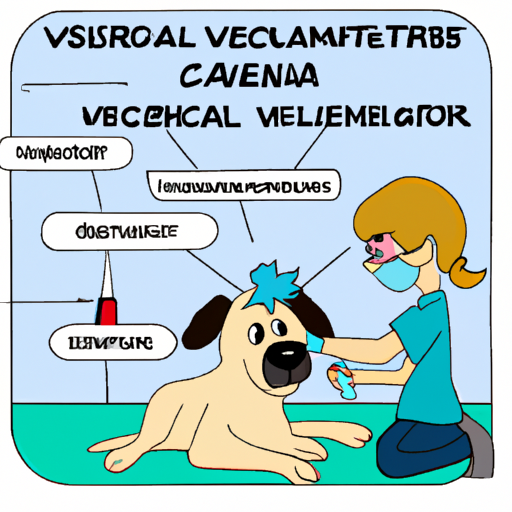Understanding Seborrhea in Dogs
Seborrhea, also known as “seborrheic dermatitis,” is a common skin condition that affects dogs of all breeds and ages. As a caregiver, it’s crucial to understand that seborrhea can cause your lovable pet discomfort, itching, and even lead to secondary infections. But don’t worry, with the right knowledge and care, you can help your furry friend feel better in no time.
Recognizing the Symptoms
To effectively treat seborrhea, you first need to be able to recognize the signs. These may include:
- Oily, greasy skin
- Dry, flaky skin (often appearing like dandruff)
- Redness and inflammation
- Foul odor
Remember, while these symptoms may be distressing to see, with your love and care, they are manageable.
The Treatment Protocol
Next, let’s talk about the treatment protocol. Here’s a step-by-step guide that you can follow:
-
Visit the Vet: Always start with a visit to your vet. They can confirm whether your dog has seborrhea and rule out other conditions.
-
Medicated Shampoos: Your vet may recommend a medicated shampoo, which can help soothe your dog’s skin and control the condition.
-
Dietary Changes: Some dogs may benefit from dietary changes. Your vet can guide you on this.
Remember, each dog is unique. What works for one might not work for another. It’s all about finding the right balance for your furry friend.
Preventive Measures
Just like humans, preventive care for dogs is just as important as treating existing conditions. Here are some preventive measures you can take:
- Regular grooming: Brush your dog’s coat regularly to remove loose hair and skin flakes.
- Balanced diet: Ensure your dog is getting a balanced diet with the right nutrients.
- Regular vet checks: Regular vet visits can help detect early signs of seborrhea.
Creating a Comfortable Environment
Finally, remember that your dog’s environment plays a big role in their overall health.
| Tips | Description |
|---|---|
| Avoid harsh chemicals | Household cleaners can aggravate your dog’s skin condition. |
| Provide soft bedding | Soft, comfortable bedding can help prevent skin irritation. |
| Keep your home clean | A clean environment can prevent secondary infections. |
FAQ Section
Q: Can seborrhea in dogs be cured?
A: While there’s no outright cure, it can be controlled with ongoing care and treatment.
Q: What causes seborrhea in dogs?
A: It can be genetic or secondary to other conditions like allergies or hormonal imbalances.
Q: Can I use my dandruff shampoo on my dog?
A: No, human shampoos can be too harsh for dogs. Always use a vet-recommended product.
Remember, as a caregiver, your love, patience, and consistent care can help your four-legged friend live a comfortable, healthy life.



